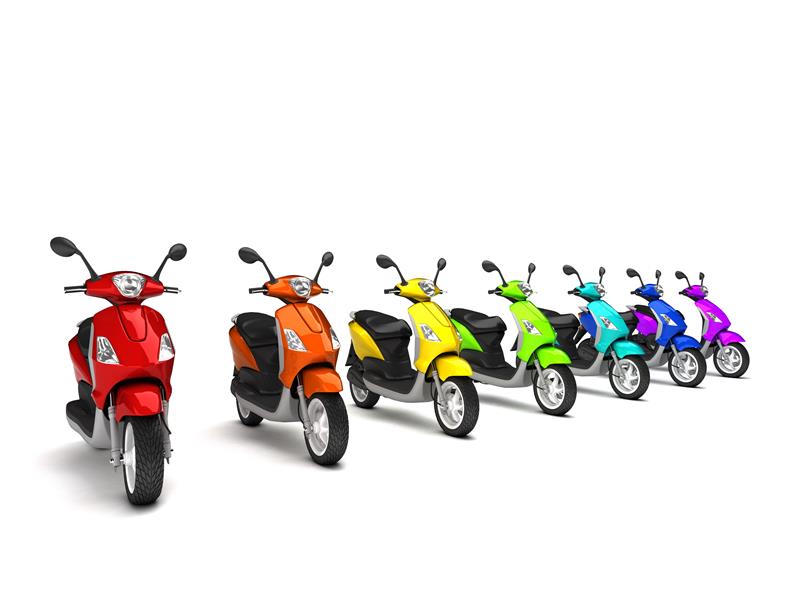No helmet? Your bike insurance claim might not be honoured
No helmet? Your bike insurance claim might not be honoured

Did you know that India is the largest two-wheeler market in the world, not only in terms of sales, but also in terms of manufacturing? With 21.19 million in sales volume in 2019, India’s two-wheeler market is forecasted to expand at a CAGR of 7.33% to 24.89 million units by 2024. Unfortunately, this is matched by a rise in two-wheeler accidents too. As per the 2019 Road Accident report of the Road and Transport Ministry, two-wheelers account for 37% of total number of road accident deaths, much higher than the global range of 5-18%. Those not wearing helmets accounted for 29.82% of total road accident deaths in the country.
Hence, wearing a helmet is the single-most effective way of reducing head injuries and fatalities associated. They ease the bike insurance claim settlement process too, in case you meet with an accident. Read on to understand this better.
Why wear a helmet when you ride your bike?
Reduces deceleration of the skull
At the moment of impact, the skull lunges to a stop. However, with a helmet, the soft padding inside absorbs the shock and slows the halting of the head. This prevents the brain from hitting the skull with great force.
Spreads shock around the skull
The helmet helps to spread the shock of impact around the skull, as opposed to just the point of impact. This not only reduces the overall pressure on the skull, but also helps prevent possible breaches.
Prevents direct contact
Most obviously, the helmet acts as your head’s first line of defence against direct contact with the impacting object, acting as a barrier between the two. Preventing a direct hit on the skull also helps in reducing the severity of the injury.
While it’s apparent what helmets can do, it’s important to understand what it doesn’t do. Primarily, it does not prevent injuries to other parts of the body, most notably the face and neck. While it may reduce injuries to the face if you have a full-face helmet, neck protection is not guaranteed. Also, high-speed crashes are likely to result in fatal injuries, regardless of the type of helmet worn. However, wearing a helmet considerably decreases the risk and severity of head injuries. It also has an effect on your insurance claim.
How does not wearing a helmet impact two-wheeler insurance claim?
Usually, you can make a claim in case of an accident and avail the benefits offered according to the type of two-wheeler insurance. While a COMPREHENSIVE INSURANCE POLICY FOR BIKE also covers own damage (damage to your bike) and legal liabilities, THIRD-PARTY BIKE INSURANCE only covers damages to the third party and their property. Moreover, riders must have a mandatory personal accident cover of upto Rs. 15 lakhs. This cover provides financial assistance in case of an injury, disability, or death due to an accident.
However, insurers are well within their rights to deny coverage to a rider not wearing a helmet, as it is considered negligent behaviour, and is also illegal. You could lose out on your insurance benefits for not wearing a helmet, which would come as a ‘double whammy’ if you get grievously injured in a bike accident. Your claim might get rejected outright.
Conclusion
Wearing a helmet while riding is crucial for health and financial reasons. Every INSURANCE POLICY FOR BIKES stipulates that you wear a helmet while riding to enjoy its benefits. It’s similar to car insurance wherein you have to wear a seatbelt. Now, these days, you can easily avail an insurance policy for your bike online, with an easy claims and disbursal process. But make sure you wear a helmet and ride safe.
Disclaimer: The above information is for illustrative purpose only. For more details, please refer to policy wordings and prospectus before concluding the sales.
Related Articles
‘Better Safe Than Sorry!’ – How a well-equipped safety kit can ensure a safe drive
Important two-wheeler riding tips for teenage drivers
Stay Safe: Follow these seven steps to avoid road accidents










 Health Insurance
Health Insurance  Travel Insurance
Travel Insurance  Car Insurance
Car Insurance  Cyber Insurance
Cyber Insurance  Critical Illness Insurance
Critical Illness Insurance
 Pet Insurance
Pet Insurance
 Bike/Two Wheeler Insurance
Bike/Two Wheeler Insurance  Home Insurance
Home Insurance  Third Party Vehicle Ins.
Third Party Vehicle Ins.  Tractor Insurance
Tractor Insurance  Goods Carrying Vehicle Ins.
Goods Carrying Vehicle Ins.  Passenger Carrying Vehicle Ins.
Passenger Carrying Vehicle Ins.  Compulsory Personal Accident Insurance
Compulsory Personal Accident Insurance  Travel Insurance
Travel Insurance  Rural
Rural 











